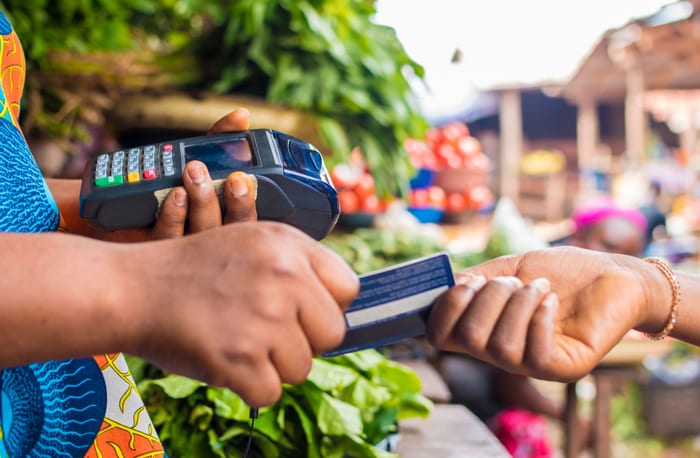Africa’s fintech sector is set to lead global growth this decade, with revenue projected to soar by 13 times by 2030, according to a report from Boston Consulting Group (BCG) and QED Investors. This explosive growth is expected despite the persistent challenge of financial inclusion; nearly 57% of Africans remain unbanked, according to World Bank data. However, with the right strategies and solutions, fintech could play a pivotal role in bridging this gap.
The report highlights that Africa’s rapid digital transformation could enable it to leapfrog traditional banking methods, especially in cashless payments. “We expect some degree of leapfrogging in technology, particularly when it comes to cashless payments,” noted Rishi Varma, coauthor of BCG’s Global Fintech report. Early-stage investor Eghosa Omoigui believes this growth will hinge on fintechs creating solutions that reflect Africans’ daily realities, urging for products “with empathy and understanding.” According to him, adoption is tied closely to how well these products meet local needs, stressing that high-integrity founders and investors who are willing to play the long game will be crucial to this mission.
Collaboration and Infrastructure as Catalysts for Expansion
To achieve sustainable growth, fintech firms will need to work closely with incumbent institutions like banks and telecoms, leveraging their reach and resources to accelerate digital infrastructure. Varma noted that such partnerships could bolster African economies and improve living standards by driving innovation. With the majority of traditional banks in Africa serving only 5-10% of the population, fintechs have a unique opportunity to reach the remaining 90%, according to Benoit Delestre, chairman at Saviu Ventures.
Omoigui agrees that fintech’s rise could reshape Africa’s digital infrastructure. Without alternatives from traditional banks, fintechs can become trusted financial providers in ways that banks have not. He sees this shift as a positive, enabling local businesses to reach scale and better serve the vast unbanked market.
Regulatory Challenges and Opportunities
While growth potential is high, regulatory hurdles loom large. Varma emphasized the need for regulatory environments that foster fintech innovation while protecting consumers. He noted that countries like India, Brazil, and Mexico have pioneered regulatory frameworks that support fintech expansion, a model that major African economies like South Africa, Nigeria, Egypt, and Kenya could emulate. “These policies have directly contributed to building consumer trust and supported the growth of fintech companies,” Varma said, adding that such measures could create the foundation for scalable digital and data infrastructure across Africa.
Ashim Egunjobi, a VC investor, echoed Varma’s sentiments, highlighting that clear, supportive policies are vital for attracting institutional investors to the sector. Egunjobi foresees an increase in both local and international investors entering the B2B and B2B2C fintech markets, particularly as emerging technologies like AI and machine learning reshape fintech’s value proposition. “These technologies will not only create unique selling points but also add real customer value,” she explained, pointing out how AI-driven data could inform regulatory decisions and help fintech founders understand customer behavior and product risk.
The Road Ahead: Investments and Innovation
Africa’s fintech revolution has caught the eye of global investors, but a new wave of local investors, deeply familiar with the continent’s regulatory landscape and market drivers, is rising to the forefront. Egunjobi predicts that this growth, though challenging, will yield profitable returns for local fund managers, who are better equipped to navigate Africa’s nuanced business environment.
AI and machine learning are set to become foundational in fintech’s future on the continent, helping companies refine customer experience and operational efficiency. Egunjobi sees potential in using AI not just to streamline product development but also to proactively assess risks and understand customer needs, making the fintech experience more efficient and customer focused.
In summary, Africa’s fintech journey promises transformative growth but requires careful navigation of regulatory and infrastructure hurdles. As the sector attracts more investment and builds innovative solutions, it has the potential to redefine financial inclusion across the continent, creating economic opportunities for millions of Africans who remain outside the formal financial system.












